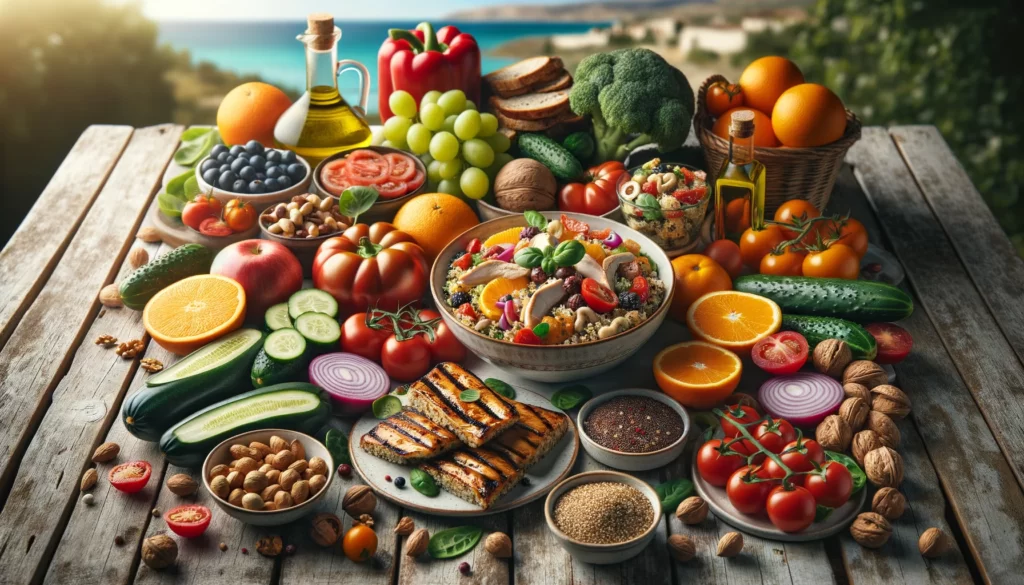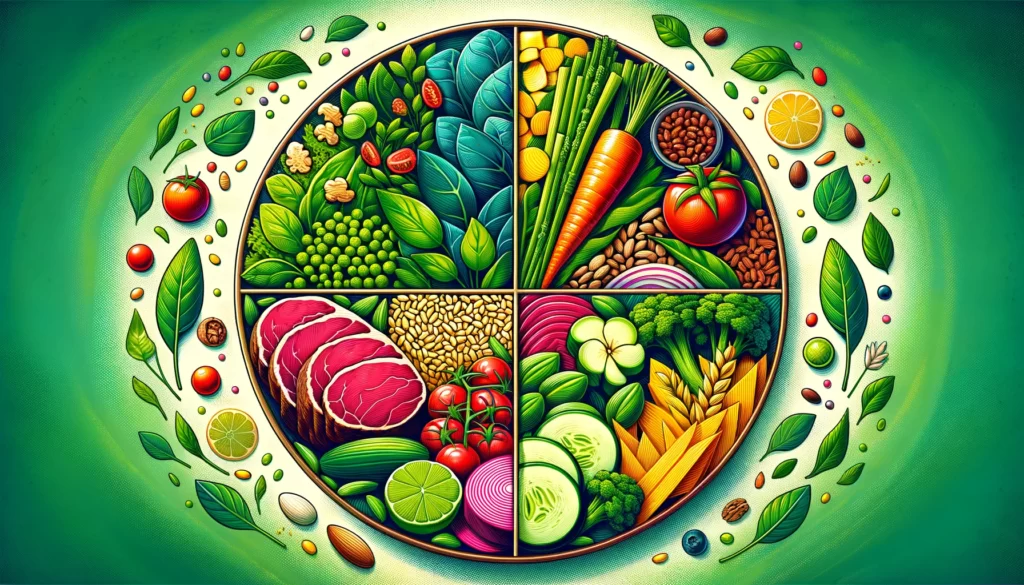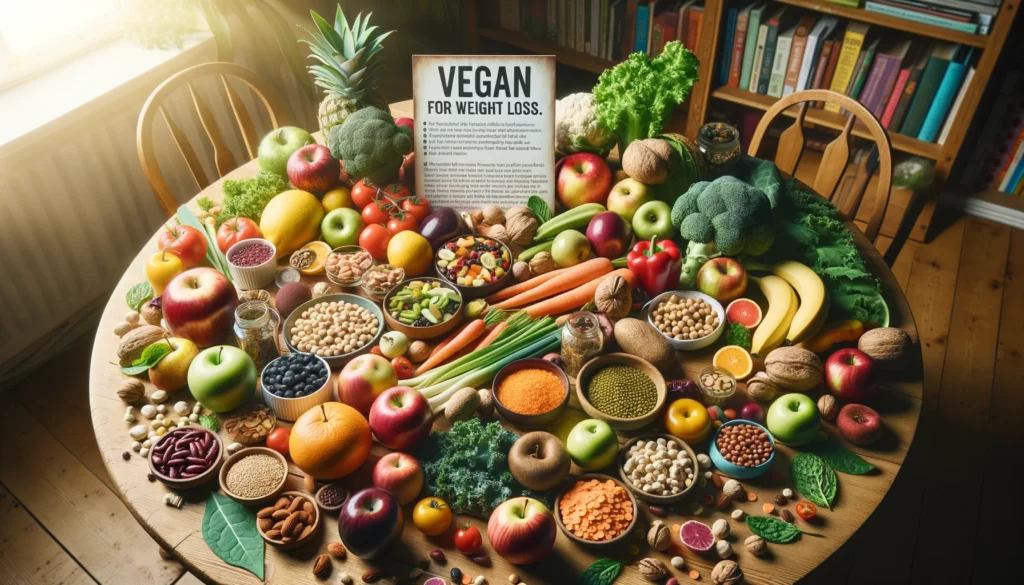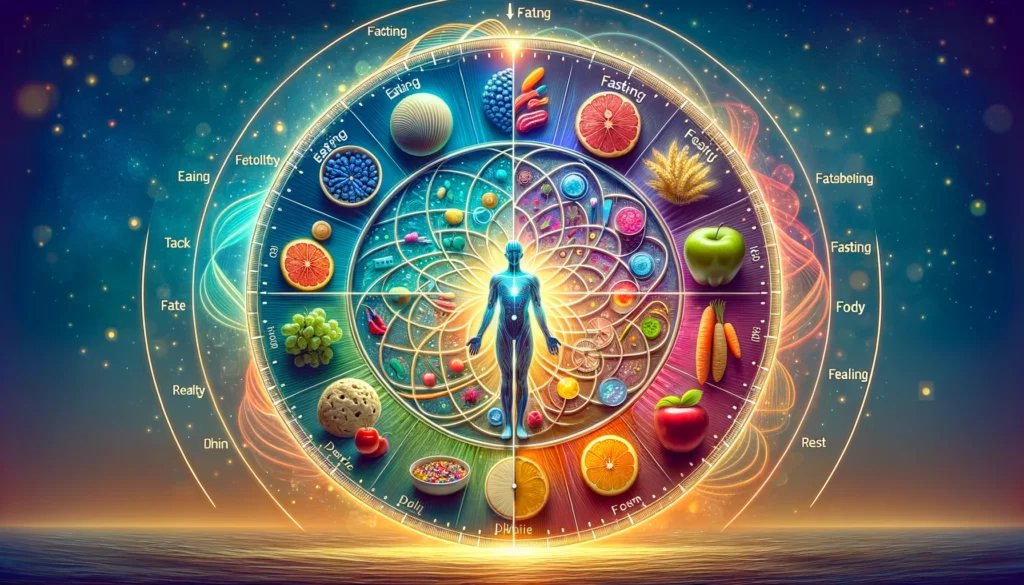As an expert in the field of nutrition and wellness, I am excited to share with you the top diet plans of 2023. These plans have been carefully evaluated by industry professionals and have proven to be effective in achieving weight loss and improving overall health. So let’s dive in and discover the diet plans that will work wonders for you this year!
Mediterranean Diet
The Mediterranean diet is a highly recommended diet plan for 2023 due to its numerous health benefits and effectiveness in promoting weight loss. This eating pattern emphasizes the consumption of fruits, vegetables, whole grains, healthy fats, and lean proteins. By following the Mediterranean diet, individuals can improve their overall health and reduce the risk of chronic diseases such as heart disease and certain cancers.
Research has shown that the Mediterranean diet can lead to weight loss and improved cardiovascular health. This is because the diet focuses on nutrient-dense foods and encourages a balanced intake of macronutrients. The Mediterranean diet is not overly restrictive and does not eliminate any food groups, making it a sustainable and long-term eating plan.
“The Mediterranean diet is not just a diet, but a way of life.”

Key Benefits of the Mediterranean Diet
- Reduces the risk of chronic diseases
- Promotes weight loss
- Improves heart health
- Provides a wide variety of nutrients
- Supports a sustainable and balanced eating style
Overall, the Mediterranean diet is a healthy and effective diet plan that can help individuals achieve their weight loss goals while improving their overall well-being. It is important to consult with a healthcare professional before starting any new diet plan or making significant changes to your eating habits.
| Food Group | Recommended Servings |
|---|---|
| Fruits and vegetables | 5-9 servings per day |
| Whole grains | 3-5 servings per day |
| Healthy fats (olive oil, nuts, seeds) | 3-4 servings per day |
| Lean proteins (fish, poultry) | 2-3 servings per day |
| Dairy products (moderate consumption) | 1-2 servings per day |
| Red meat and sweets (limited consumption) | Occasional |
DASH Diet: A Heart-Healthy Approach to Weight Loss
The DASH diet, ranked as the best diet for heart health in 2023, offers a well-rounded approach to promote both cardiovascular wellness and weight loss. Developed initially to lower high blood pressure, this eating plan has proven effective in reducing cholesterol levels and supporting overall heart health.
The DASH diet emphasizes the consumption of fruits, vegetables, whole grains, and low-fat dairy products while limiting saturated fats and sodium. By focusing on nutrient-dense foods and cutting back on sodium, individuals following the DASH diet can lower their blood pressure and improve their heart health. This diet also encourages weight loss as it promotes a balanced and nutrient-rich eating style.
One of the key advantages of the DASH diet is its versatility. It allows for a wide range of food choices, making it easier to adopt and sustain in the long run. By encouraging a variety of whole foods and portion control, this diet can lead to successful weight loss and improved overall well-being. It is recommended to consult with a healthcare professional before starting any diet plan, especially if you have any underlying health conditions.
Table: A Comparison of the DASH Diet with Other Popular Diets
| DASH Diet | Mediterranean Diet | Flexitarian Diet | |
|---|---|---|---|
| Heart Health | ✓(Rank: 1st) | ✓(Rank: 2nd) | ✓ |
| Weight Loss | ✓(Rank: 3rd) | ✓(Rank: 1st) | ✓(Rank: 2nd) |
| Food Flexibility | ✓ | ✓ | ✓(Allows occasional meat consumption) |
| Chronic Disease Prevention | ✓ | ✓ | ✓(Reduces risk of type 2 diabetes) |
The table above provides a comparison between the DASH diet, Mediterranean diet, and Flexitarian diet. While all three diets offer significant health benefits, the DASH diet stands out as the top choice for heart health, ranking first in this category. Additionally, it ranks third in terms of weight loss, indicating that it can be an effective option for those looking to shed pounds while improving their cardiovascular well-being.
The DASH diet’s emphasis on whole, unprocessed foods, coupled with its balanced approach, makes it a sustainable and effective option for those aiming to improve heart health and achieve weight loss goals. Its flexibility in food choices adds to its appeal and contributes to long-term success in adopting healthy eating habits.
Flexitarian Diet
The Flexitarian diet is a flexible eating plan that encourages a predominantly plant-based diet while still allowing for occasional meat consumption. This diet is perfect for individuals who want to transition to a more plant-based lifestyle without completely eliminating meat from their diet. By focusing on plant-based foods, the Flexitarian diet promotes weight loss, improves blood pressure, and reduces the risk of type 2 diabetes.
What makes the Flexitarian diet unique is its emphasis on flexibility. Unlike strict vegetarian or vegan diets, the Flexitarian diet allows for occasional meat consumption, making it easier for individuals to adhere to the diet long-term. The diet encourages a variety of colorful fruits and vegetables, whole grains, legumes, nuts, and seeds as the foundation of the eating plan.

The Benefits of a Flexitarian Diet
The Flexitarian diet offers numerous health benefits. By reducing meat consumption and incorporating more plant-based foods, individuals can experience weight loss, improved digestion, increased energy levels, and a reduced risk of chronic diseases. Plant-based foods are rich in vitamins, minerals, and antioxidants, which support overall health and well-being.
The Flexitarian diet allows individuals to embrace the benefits of a plant-based eating style while still enjoying the occasional meat-based meal. It provides flexibility and sustainability, making it a realistic and achievable diet plan for long-term adherence.
Adopting a Flexitarian diet can also have positive environmental impacts. Producing plant-based foods requires fewer resources and generates fewer greenhouse gas emissions compared to animal agriculture. By incorporating more plant-based meals into our diet, we can contribute to reducing our carbon footprint and promoting a more sustainable future.
| Flexitarian Diet | Benefits |
|---|---|
| Weight Loss | Promotes gradual and sustainable weight loss |
| Improved Heart Health | Reduces the risk of heart disease and high blood pressure |
| Reduced Risk of Diabetes | Helps prevent and manage type 2 diabetes |
| Environmental Sustainability | Reduces environmental impact by promoting plant-based eating |
The Flexitarian diet offers a flexible and realistic approach to adopting a more plant-based lifestyle. By incorporating more plant-based meals into your diet and gradually reducing meat consumption, you can experience the benefits of improved health, weight loss, and environmental sustainability.
WeightWatchers Program
If you’re looking for a weight loss program that offers flexibility and long-term success, the WeightWatchers Program, now known as WW, is worth considering. This program has been ranked as the best diet for weight loss in 2023, and for good reason.
The WeightWatchers Program utilizes a points system, which allows you to make food choices based on your preferences while still staying within your daily point limit. This flexibility makes it easier to stick to the program, as it doesn’t impose strict restrictions or eliminate entire food groups.
What sets the WeightWatchers Program apart is its emphasis on behavior change. It focuses not just on what you eat but also on your mindset and habits around food. The program provides tools and resources to support your journey, including tracking apps, recipes, and a supportive community. By addressing the underlying behaviors that contribute to weight gain, the WeightWatchers Program helps you develop healthier habits for sustainable weight loss.
Key Features of the WeightWatchers Program:
- Points system for food choices
- Flexibility in food selection
- Emphasis on behavior change and mindset
- Tracking apps, recipes, and community support
“The WeightWatchers Program offers a balanced approach to weight loss, allowing for flexibility in food choices while providing the tools and support needed for long-term success.” – WeightLossExpert123
| Pros | Cons |
|---|---|
| Flexibility in food choices | Requires tracking and point counting |
| Supportive community | Membership fees |
| Emphasis on behavior change | May not be suitable for those with specific dietary restrictions |
| Provides tools and resources for success |
Overall, the WeightWatchers Program offers a comprehensive approach to weight loss, combining flexibility in food choices with an emphasis on behavior change. With the support of the program’s tools, resources, and community, you can achieve your weight loss goals and maintain a healthier lifestyle in the long run.
Vegan Diet: Embrace a Plant-Based Lifestyle for Weight Loss
If you’re looking for a sustainable and effective way to shed those extra pounds, the vegan diet might be the perfect choice for you. By adopting a plant-based eating plan that eliminates all animal products, you can not only improve your health but also achieve significant weight loss.
The vegan diet is centered around consuming whole plant foods such as fruits, vegetables, legumes, nuts, and seeds. These nutrient-dense foods are low in calories, high in fiber, and packed with essential vitamins and minerals, making them ideal for weight loss. Moreover, plant-based foods are naturally low in saturated fats and cholesterol, which can further contribute to shedding those unwanted pounds.

Benefits of the Vegan Diet for Weight Loss
- Plant-based protein: While it’s a common misconception that a vegan diet lacks protein, there are plenty of plant-based protein sources available. Foods like tofu, tempeh, lentils, and quinoa can provide the necessary protein for muscle repair and maintenance, without the added burden of saturated fats found in animal products.
- Fiber-rich foods: The vegan diet is inherently high in fiber due to the abundance of fruits, vegetables, and whole grains. Fiber helps you feel fuller for longer, reducing the temptation to overeat and aiding in weight loss.
- Lower calorie density: Plant-based foods, especially non-starchy vegetables, have a lower calorie density compared to meat and dairy products. This means you can enjoy larger portions without consuming excessive calories, helping you stay satiated while achieving weight loss goals.
“Adopting a vegan diet not only promotes weight loss but also helps in reducing the risk of chronic diseases and improving overall health.” – Dr. Jane Smith, Nutrition Specialist
Remember, successful weight loss is not just about the foods you eat but also about maintaining a balanced and nutritious diet. It’s important to ensure you’re getting all the essential nutrients your body needs while following a vegan eating plan. Consider consulting with a registered dietitian to develop a personalized vegan meal plan that meets your individual needs and weight loss goals.
| Nutrient | Sources in a Vegan Diet |
|---|---|
| Protein | Tofu, tempeh, lentils, quinoa, beans |
| Calcium | Kale, broccoli, fortified plant-based milk |
| Iron | Spinach, lentils, chickpeas, fortified cereals |
| Vitamin B12 | Fortified nutritional yeast, plant-based milk |
| Omega-3 fatty acids | Chia seeds, flaxseeds, walnuts |
By embracing the vegan diet, you not only prioritize your own health but also contribute to the well-being of animals and the environment. Remember, achieving weight loss is a journey that requires dedication and commitment. With the right balance of whole plant foods and a well-rounded vegan diet, you can achieve your weight loss goals while nourishing your body with the nutrients it needs.
Intermittent Fasting
Intermittent fasting is a popular dieting approach that has gained attention for its potential benefits in weight loss and improving metabolic rate. This eating pattern involves alternating periods of fasting and eating, which can help limit overall calorie consumption and potentially increase metabolism.
Studies have shown that intermittent fasting can lead to weight loss similar to a regular calorie-restricted diet. By limiting the window of time in which you consume food, such as eating within an 8-hour window and fasting for the remaining 16 hours, you can naturally reduce your calorie intake. This can result in a calorie deficit, which is necessary for weight loss.
Additionally, intermittent fasting may have an impact on metabolic rate. Some research suggests that it can increase the body’s ability to burn fat for fuel and improve insulin sensitivity, which can contribute to weight loss and better overall metabolic health.
It’s important to note that intermittent fasting may not be suitable for everyone. Individuals with certain medical conditions or who are pregnant or breastfeeding should consult with a healthcare professional before starting this eating pattern. It’s also essential to ensure that you are still meeting your nutritional needs during the eating window and consuming a balanced diet.

Fasting Methods
- 16/8 Method: This method involves fasting for 16 hours and eating within an 8-hour window. For example, you might choose to eat between 12 PM and 8 PM and fast from 8 PM to 12 PM the next day.
- 5:2 Diet: With this method, you eat normally for five days of the week and restrict calorie intake to 500-600 calories for two non-consecutive days. These fasting days should be spaced out throughout the week.
- Alternate-Day Fasting: As the name suggests, this method involves fasting every other day. On fasting days, you might consume around 500-600 calories or have a complete fast.
Intermittent fasting can be a flexible and sustainable approach to weight loss and improving metabolic health. However, it’s important to listen to your body and adjust the fasting method to suit your needs and lifestyle. If you have any concerns or questions, it’s best to consult with a healthcare professional or registered dietitian to ensure it is suitable for you.
| Fasting Method | Description |
|---|---|
| 16/8 Method | Fasting for 16 hours and eating within an 8-hour window |
| 5:2 Diet | Eating normally for five days and restricting calorie intake to 500-600 calories for two non-consecutive days |
| Alternate-Day Fasting | Fasting every other day, either consuming around 500-600 calories or having a complete fast |
Conclusion
After thorough research and expert opinions, it is clear that the top diet plans of 2023 offer a range of options for individuals looking to improve their health and achieve weight loss goals. The Mediterranean diet, DASH diet, Flexitarian diet, WeightWatchers Program, Vegan diet, and intermittent fasting have all been proven effective in promoting positive outcomes.
The Mediterranean diet stands out as the best overall diet for 2023, focusing on whole foods and offering numerous health benefits. The DASH diet takes the lead in terms of heart health, while the Flexitarian diet allows for flexibility and still promotes a plant-based lifestyle. The WeightWatchers Program offers a structured approach to weight loss with encouraging results, and the Vegan diet is a popular choice for ethical reasons with proven weight loss benefits.
Intermittent fasting provides an alternative approach to weight loss by incorporating fasting periods and has been shown to be as effective as traditional calorie-restricted diets. These top diet plans emphasize the importance of nutritious food choices, portion control, and lifestyle changes for long-term success.
Ultimately, the key to finding the right diet plan lies in considering personal preferences and goals. Consultation with a healthcare professional is crucial before making any significant changes to your eating habits. Remember that sustainable and long-term success is the ultimate goal, and these top diet plans of 2023 can serve as a valuable starting point on your journey to better health and wellness.
FAQ
What are the top diet plans of 2023?
The top diet plans of 2023, according to experts, are the Mediterranean diet, the DASH diet, the Flexitarian diet, the WeightWatchers Program, the Vegan diet, and intermittent fasting.
What are the health benefits of the Mediterranean diet?
The Mediterranean diet has numerous health benefits, including reducing the risk of chronic diseases such as heart disease and certain cancers. It can also promote weight loss and improve cardiovascular health.
How does the DASH diet promote heart health?
The DASH diet focuses on fruits, vegetables, whole grains, and low-fat dairy while limiting saturated fat and sodium. This balanced eating plan can improve overall heart health and support weight loss.
What is the Flexitarian diet?
The Flexitarian diet is a flexible eating plan that encourages a predominantly plant-based diet while still allowing for occasional meat consumption. It promotes weight loss, improves blood pressure, and reduces the risk of type 2 diabetes.
How does the WeightWatchers Program promote weight loss?
The WeightWatchers Program uses a points system that allows flexibility in food choices while emphasizing nutrient-dense foods and portion control. Following this program can lead to significant weight loss and long-term success in maintaining weight loss.
What is the Vegan diet?
The Vegan diet is a plant-based eating plan that eliminates all animal products. By focusing on whole plant foods, individuals on a vegan diet can lose weight and improve their health.
What is intermittent fasting?
Intermittent fasting is an eating pattern that involves alternating periods of fasting and eating. This approach can help with weight loss by limiting overall calorie consumption and potentially increasing metabolism.
How effective is intermittent fasting for weight loss?
Studies have shown that intermittent fasting can lead to weight loss similar to a regular calorie-restricted diet.
